Current IssueFrom the Editors
In this issue we are proud to present a previously unpublished lecture by C.L.R. James, the noted Afro-Caribbean Marxist intellectual. His discussion of Oliver Cox’s book Caste, Class, and Race, first published in 1948, brings an historic Black socialist voice to illuminate some of the issues that face our own times and the demand that Black Lives Matter. Washington and Moscow: Halt the Bombing and Stop Supporting Dictators in the Middle East!
A Discussion of the Sanders CampaignWinter 2016
Bernie Sanders and the Dilemma of the Democratic “Party”
The Sanders Campaign and the Left
Symposium on InequalityWinter 2016Introduction
Inequality has become a defining issue of our time, with political commentators of all stripes discussing its causes, effects, and possible solutions. Thomas Piketty’s 2013 work, Capital in the Twenty-First Century, set off a chain reaction of books, journal articles, conferences, and debates focusing on questions of inequality. We intend to push this critique further. The Systemic EdgeAn Interview with Saskia Sassen
The Rise of the Servant Society
Debt, Underemployment, and CapitalismThe Rise of Twenty-First-Century Serfdom
The Roots of the Modern Housing Crisis
Introduction
In 1971 the Institute of the Black World (IBW) was at a crossroads. Founded in 1969 by historian Vincent Harding, literary scholar Stephen Henderson, and other scholars in the colleges that comprised the Atlanta University Center (AUC), as well as with the support of leading national researchers of the African American experience, the IBW served as the intellectual wing of the Martin Luther King Center. The Class Basis of the Race Question in the United States
Turkey, Kurdistan, and RojavaWinter 2016Prospects for TurkeyA Historical Perspective
A Commune in Rojava?
The Kurds, Bookchin, and the Need to Reinvent Revolution
Who Wins From “Climate Apartheid”?African Climate Justice Narratives About the Paris COP21
Wealth Extraction, Governmental Servitude, and Social Disintegration in Colonial Puerto Rico
Podemos and the 15M Language Community
Radical Art: Art Young and the Cartoons of American Socialism
Social Capital and Class
The American Dream, that fantasy of growth that has long girded the ideology of entrepreneurship and a better future, is in crisis. Many haven’t felt the dream for decades, some never having experienced it at all. Robert Putnam, in his latest work, Our Kids, seeks to confront this stagnation in our economic dreams by interrogating the forces that have taken hold of communities across the United States. An Insider’s Look at What it Takes to Get By
In 2001, Professor Danny Dorling wrote an essay entitled “Anecdote Is the Singular of Data.” In it he explored how, during his teenage years, he grasped the idea that the places people live impact the lives they lead. Dorling opens the essay by describing a pedestrianized subway near his childhood home. The subway had four entrances, each leading from a different housing development. Who’s in Charge?The Power Structure and Foreign Policy
The godfather of macro-level power structure research in the United States was the sociologist C. Wright Mills, author of The Power Elite (1956). What Is This Thing Called Leninism?
First, allow me to come clean: I count Paul Le Blanc as a friend and comrade and am in his debt—along with Peter Hudis, author of Marx’s Concept of the Alternative to Capitalism (Haymarket, 2013)—for inviting me to join the editorial board of the Complete Works of Rosa Luxemburg being published by Verso Books. And I am in agreement with many of the positions on politics and historical matters that Le Blanc expresses in Unfinished Leninism. The Intelligent Human’s Guide to Socialism
This is the book many socialists have been waiting for, although we probably didn’t know it. In just over 150 pages it describes the core socialist ideas in a clear, highly accessible way. The fact that the book is frequently laugh-out-loud funny makes it even better. Socialism … Seriously is written for people who are new to socialism and want to find out what it’s all about. The first question about a book that sets out to explain socialism is, of course, what the author means by socialism. The Party of “Peace and Justice”
First, full disclosure: I read most of Jack Ross’s The Socialist Party of America in draft. Although it is normally not good policy to then review the book, I felt I could express my respect for what Jack Ross is attempting and share my concerns in a way that could serve a useful purpose. A Bottom-Up History, Not a Comfortable Reinforcement
Agustín Guillamón is a dedicated anarcho-syndicalist activist whose partisanship has not affected his critical sensitivities nor prevented him from graphically outlining what he regards as the errors and inconsistencies of the Spanish libertarian left. Happiness Is PoliticalWilliam Thompson’s Utilitarian Argument for Democratic Work
”Happiness is political,” is the opening line of Kaswan’s provocative book on William Thompson’s theory on the social nature of happiness and its ramification for organizing a just society. Kaswan introduces the reader to Thompson (1775-1833) as “perhaps the paradigmatic case of a traitor to his class.” Thompson was the only son of a wealthy merchant in Cork, Ireland; however as a political theorist, he developed ideas of the Enlightenment in a liberatory direction, calling for the elimination of subordination in all its manifestations. |
Blogs & On-Line FeaturesChicago teachers (again) rewrite a playbook stacked against labor
The Chicago Teachers Union (CTU) strike April 1 is not primarily about increased school funding, standardized testing, pensions for teachers, or even just corporate taxation, though the union is fighting for all of these. The strike is about democracy, especially who owns our society’s resources and how decisions about those resources are made.
Why Chicago teachers should support the April 1 walkout
A new Jacobin piece by Micah Uetricht and Sarah Chambers is a must-read to understand what's at stake in the April 1 walkout of Chicago teachers. (My own thoughts about the political implications of the strike are in a piece in press.) But for now I want to explain to teachers who may be considering crossing the union's picket lines tomorrow why that would be a very big mistake for them personally.
The Dark Night and the Coming Dawn in Mexico
This is the second of three book reviews that will look at what Mexican intellectuals on the left have written in an attempt to understand Ayotzinapa and what it symbolizes and signifies for their country and its future. The first review appeared here. - DL Manuel Aguilar Mora and Claudio Albertani, eds., La noche de Iguala y el despertar de México. Mexico: Juan Pablos Editor, 2015. Pp. 382. Photographs. Illustrations. Maps. Tables. (Available only in Spanish at this time.) The Night of Iguala and the Awakening of Mexico (as we translate the title of this book), like Sergio Aguayo’s From Tlatelolco to Ayotzinapa, deals with the horrifying killing of six people and forced disappearance of 43 students of the Ayotzinapa Rural Teachers College in the town of Iguala, Guerrero on September 26, 2014.
Questions to Oklahoma Green Party about Its Endorsement of Bernie Sanders
Interview by Jim Brash of North Star Editorial Board, February 26, 2016 Questions posed to Rachel Jackson, State Facilitator, Green Party Oklahoma Cooperative Council about their endorsement of Bernie Sanders 1. Is the endorsement of Bernie a tactical move? Our endorsement of Bernie Sanders in the Oklahoma Democratic Primary accomplishes two goals: 1.) to find a way to participate electorally given our state’s repressive ballot access laws, and 2.) to build a base to strengthen our efforts to reform those ballot access laws. State Terror from Tlatelolco to Ayotzinapa - First of Three Book Reviews
This is the first of three book reviews that will look at what Mexican intellectuals on the left have written in an attempt to understand Ayotzinapa and what it symbolizes and signifies for their country and its future. - DL Sergio Aguayo. De Tlatelolco a Ayotzinapa: Las violencias del Estado. Editorial Ink, 2015. (This book in Spanish is available in several formats including Kindle, which is how the reviewer read it.) The horrifying killing of six people and forced disappearance of 43 students of the Ayotzinapa Rural Teachers College in the town of Iguala, Guerrero on September 26, 2014 had a dramatic impact on Mexico.
Should Cuba Remain a One-Party State?
The one-party state is a very controversial question that few of the left-wing critics of the Cuban regime have been willing to address. What follows is an attempt to explore, from the left, some of the issues around this topic. Getting From Here to There: A Response to Barry Finger
I must admit that I’m somewhat reluctant to write a response to my friend Barry Finger’s response to my article in the Winter 2016 issue of New Politics on Bernie Sanders while the Democratic presidential candidate race between Hillary Clinton and Sanders is still going on. Nevertheless, I will do so. First, it should now be clear, in the wake of Sanders’ victories in yesterday’s Democratic caucuses, that Barry’s assertion that “the Sanders challenge within the Democratic Party has come to its natural conclusion” is not justified. Let’s not make grand pronouncements of this sort until we’re far closer to the Democratic National Convention.
A New Politics in America - Part 9 - From the Sanders Campaign Forward: Where Do We Go From Here?
Part 9 of A New Politics in America. This concludes the series. All nine parts can be fond on the New Politics website, newpol.org So what does this era of a new politics in America mean? How significant are new right and new left in America today? Where do we go from here? What are we in the left to do? Should we be building progressive Democratic Party campaigns? Should we just go back to building the movements? Or is there another option? To figure this out, we have to understand that though we are in a new political era, many of the old problems still remain.
Towards Progressive Politics in the Middle EastProblematica in conversation with Gilbert Achcar
Recent mass movements in Middle Eastern and North African countries, despite their defeats and failures, showed prospects and possibilities of a progressive change or a progressive mass organization in the region. Fulfillment of these possibilities requires concentrating on attaining a comprehensive, critical knowledge of the region’s social, political, economic and cultural mechanisms and relations. To achieve these initial goals, Problematica has started a series of interviews with progressive or leftist Middle Eastern and North African intellectuals, activist and MENA scholars. In this interview over Skype, we have put some questions to Gilbert Achcar, Marxist intellectual and scholar of Middle East Studies and Professor of Development Studies at SOAS, University of London. He has published in 2013 The People Want: A Radical Exploration of the Arab Uprising. A sequel will be coming out soon under the title of Morbid Symptoms: Relapse in the Arab Uprising. On the Brussels Attacks
The following statement was made by the Revolutionary Communist League-Socialist Workers Party (LCR-SAP) of Belgium following the attacks in Brussels. The LCR-SAP condemns in the most energetic fashion the cowardly terrorist attacks that were perpetrated on 22 March in Brussels. No political or religious motivation can be an excuse for these heinous crimes. The LCR-SAP expresses its support and its profound solidarity with all the innocent victims of this blind violence. A New Politics in America - Part 8 - Hillary and the Donald
This is part 8 of A New Politics in America. Find previous parts on newpol.org. Hillary—Establishment and Dynasty The tremendous success of the Bernie Sanders campaign—in turning out tens of thousands to his rallies, getting millions to contribute to his campaign, and winning an impressive number of states and delegates—is primarily due to his clear message: his call for a progressive economic program to provide jobs, universal health care, and free higher education, as well as an end to the role of money in politics, and an insistence on an end to structural racism, in particular racist police violence. Yet there is also no doubt that many have turned to Sanders because they do not want the Democrats’ presidential candidate to be Hillary Clinton, whom they see as embodying all that they despise about the American political system.
Sanders and the Democrats: a Reply to Jason Schulman
There is much to admire and learn from in Jason Schulman’s article “Bernie Sanders and the Dilemma of the Democratic ‘Party.’,” not least of which is Jason’s implicit insistence that the base of any future American left is composed of people who are currently in the liberal wing of the Democratic Party, and in its best elements represented by the Sanders’ insurgency. Obvious as this might be to readers of New Politics, this is still a disputed opinion on the radical left in America. We – Jason and I – both look forward to that movement developing a breakaway consciousness as it confronts an implacable Democratic establishment proudly wedded to the status quo. A New Politics in America - Part - 7 - From Occupy to Progressive Politics and Black Lives Matter
This is party 7 of A New Politics in America. Part 6 and links to earlier parts can be found here. Progressive Politics Occupy, though it had eschewed politics, had important political ramifications. A few liberal Democrats soon appeared to give expression to the new movements within their rightward moving party.
New York City Has the Power to Do Better than de Blasio’s Housing Plan
On Tuesday, March 22, the New York City Council is expected to pass Mayor Bill de Blasio’s housing and zoning plan, which permanently ties the creation of a relatively small amount of not-that-affordable housing to the massive co-production of luxury housing.[i] It is being sold as the best we can do with the tools that we have. It is not. Instead, it puts to work the most lucrative and least effective tools available, and locks the city into repeated cycles of gentrification and displacement.
A New Politics in America - Part 6 - From the Tea Party to Occupy Wall Street
This is Part 6 of A New Politics in America. Part 5 and links to early parts can be found here. The Tea Party The Great Recession and the government’s response to it gave a new impetus to the right. President Barack Obama’s election in 2008 in the midst of the recession proved an ideal catalyst for the bringing together of a new far right movement.
|

 Outside powers have had a long and shameful history of cynically supporting dictatorships in the Middle East because maintaining friendly autocratic states in the region suits their geopolitical objectives. And today those criminal policies are flagrantly on display.
Outside powers have had a long and shameful history of cynically supporting dictatorships in the Middle East because maintaining friendly autocratic states in the region suits their geopolitical objectives. And today those criminal policies are flagrantly on display.  The Bernie Sanders campaign in the Democratic Party has attracted the support of millions, raised an economic reform program such as we have not seen in decades, and has led to a national discussion about the nature of socialism. At the same time, he has ceased to be an independent, has joined the Democratic Party, and has promised to support its nominee, in all likelihood Hillary Clinton. This has led to much discussion and debate on the left. New Politics has solicited two articles from different points of view on the Sanders campaign, one by our co-editor Jason Schulman and the other by Lance Selfa and Ashley Smith of the International Socialist Organization.
The Bernie Sanders campaign in the Democratic Party has attracted the support of millions, raised an economic reform program such as we have not seen in decades, and has led to a national discussion about the nature of socialism. At the same time, he has ceased to be an independent, has joined the Democratic Party, and has promised to support its nominee, in all likelihood Hillary Clinton. This has led to much discussion and debate on the left. New Politics has solicited two articles from different points of view on the Sanders campaign, one by our co-editor Jason Schulman and the other by Lance Selfa and Ashley Smith of the International Socialist Organization.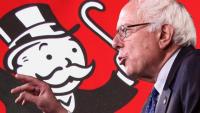 Some months ago I responded to a piece that appeared on the New Politics blog by my longtime fellow NP editorial board member and friend Barry Finger.1 In my own blog, I argued that Barry had a better, more sophisticated understanding of the peculiarities of the Democratic Party and the U.S.
Some months ago I responded to a piece that appeared on the New Politics blog by my longtime fellow NP editorial board member and friend Barry Finger.1 In my own blog, I argued that Barry had a better, more sophisticated understanding of the peculiarities of the Democratic Party and the U.S. Senator Bernie Sanders’ run for the Democratic Party nomination for president has certainly energized thousands. It has also rekindled an old debate on the American left that revolves around the question: Should the left join, endorse, support, or work for campaigns in the Democratic Party?
Senator Bernie Sanders’ run for the Democratic Party nomination for president has certainly energized thousands. It has also rekindled an old debate on the American left that revolves around the question: Should the left join, endorse, support, or work for campaigns in the Democratic Party? SASKIA SASSEN is the Robert S. Lynd Professor of Sociology at Columbia University (www.saskiasassen.com). She was interviewed for
SASKIA SASSEN is the Robert S. Lynd Professor of Sociology at Columbia University (www.saskiasassen.com). She was interviewed for  We are witnessing a grand shift in the nature of capitalist society. It is not to be found simply in the expanding chasms of economic inequality, nor in the rapid social and cultural transformations shaped by globalization. Of course, economic inequality raises concern among liberals, social democrats, and socialists alike. For all see in it an ethical problem, one of unfairness, of greed, of unequal control and power.
We are witnessing a grand shift in the nature of capitalist society. It is not to be found simply in the expanding chasms of economic inequality, nor in the rapid social and cultural transformations shaped by globalization. Of course, economic inequality raises concern among liberals, social democrats, and socialists alike. For all see in it an ethical problem, one of unfairness, of greed, of unequal control and power. Systemic contradictions of capitalism have only intensified in the neoliberal era. Structural unemployment, a phenomenon directly related to capitalist modes of production, has continued unabated, creating a massive and ever-growing “reserve army of labor” that has been disenfranchised on an unprecedented scale.
Systemic contradictions of capitalism have only intensified in the neoliberal era. Structural unemployment, a phenomenon directly related to capitalist modes of production, has continued unabated, creating a massive and ever-growing “reserve army of labor” that has been disenfranchised on an unprecedented scale. 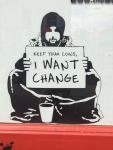 Americans today face a dual crisis: rising rents and increasingly unaffordable housing markets. The housing crisis, far from being over, has metastasized.
Americans today face a dual crisis: rising rents and increasingly unaffordable housing markets. The housing crisis, far from being over, has metastasized. Now as usual, ten past nine; I certainly will not go on beyond ten past ten. And I would like to say at once that this is the task. It is so difficult that it is as well to say at the beginning that it can be done. Five hundred and eighty-three pages [Oliver Cox’s Caste, Class and Race: A Study in Social Dynamics].
Now as usual, ten past nine; I certainly will not go on beyond ten past ten. And I would like to say at once that this is the task. It is so difficult that it is as well to say at the beginning that it can be done. Five hundred and eighty-three pages [Oliver Cox’s Caste, Class and Race: A Study in Social Dynamics]. In a June 2015 election, the new People’s Democracy Party (HDP) of Turkey passed a highly undemocratic 10 percent threshold to enter the Turkish parliament.
In a June 2015 election, the new People’s Democracy Party (HDP) of Turkey passed a highly undemocratic 10 percent threshold to enter the Turkish parliament. The siege of Kobani by Islamic State (ISIS) brought worldwide attention to the Syrian Kurdish PYD (Partiya Yekîtiya Demokrat, Democratic Union Party), the leading force in the Kurdish-majority areas in northern Syria. The PYD calls this region Rojava—literally meaning “land of the sunset” but also translated as “West Kurdistan.”
The siege of Kobani by Islamic State (ISIS) brought worldwide attention to the Syrian Kurdish PYD (Partiya Yekîtiya Demokrat, Democratic Union Party), the leading force in the Kurdish-majority areas in northern Syria. The PYD calls this region Rojava—literally meaning “land of the sunset” but also translated as “West Kurdistan.”  Today, a year after the heroic resistance of Kobani made it to the world news, it is hardly necessary to give an introduction to the Kurdish struggle, which has now taken a central place in the imagination of the international left, both vanguardist and anti-authoritarian.
Today, a year after the heroic resistance of Kobani made it to the world news, it is hardly necessary to give an introduction to the Kurdish struggle, which has now taken a central place in the imagination of the international left, both vanguardist and anti-authoritarian. The billion residents of Africa are amongst the most vulnerable to climate change in coming decades, and of special concern are high-density sites of geopolitical and resource-related conflicts: the copper belt of the Democratic Republic of the Congo and mineral-rich African Great Lakes stretching into northern Uganda, western Ethiopia (bordering the Sudanese war zone), Madagascar and s
The billion residents of Africa are amongst the most vulnerable to climate change in coming decades, and of special concern are high-density sites of geopolitical and resource-related conflicts: the copper belt of the Democratic Republic of the Congo and mineral-rich African Great Lakes stretching into northern Uganda, western Ethiopia (bordering the Sudanese war zone), Madagascar and s After ten years of economic contraction, many of the citizens of Puerto Rico find themselves watching the secular decomposition of a reality that in its heyday was painted by many as one of relative socio-economic welfare.
After ten years of economic contraction, many of the citizens of Puerto Rico find themselves watching the secular decomposition of a reality that in its heyday was painted by many as one of relative socio-economic welfare. The Indignados (in English, the “outraged”), protagonists of what is called the Spanish May 15, or 15M, Revolution (2011-2013), concentrated a great deal of their political action on the construction of a shared conceptual and emotional understanding of the political reality around them.
The Indignados (in English, the “outraged”), protagonists of what is called the Spanish May 15, or 15M, Revolution (2011-2013), concentrated a great deal of their political action on the construction of a shared conceptual and emotional understanding of the political reality around them. Arthur Henry Young (1866-1943), known to the world as Art, was arguably the most widely recognized and beloved cartoonist in the history of American radicalism. A working cartoonist for sixty years, Art Young drew thousands of simple black-line drawings with biting captions that appeared in big-city newspapers, liberal magazines, and, most importantly, in the socialist, labor, and radical press of the early twentieth century.
Arthur Henry Young (1866-1943), known to the world as Art, was arguably the most widely recognized and beloved cartoonist in the history of American radicalism. A working cartoonist for sixty years, Art Young drew thousands of simple black-line drawings with biting captions that appeared in big-city newspapers, liberal magazines, and, most importantly, in the socialist, labor, and radical press of the early twentieth century.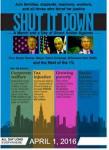




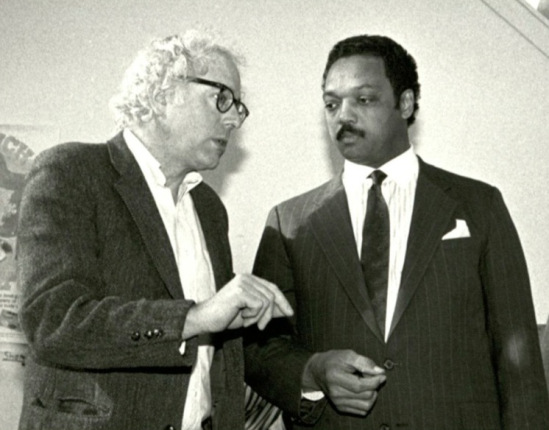
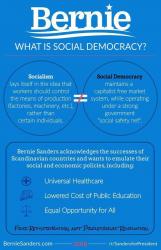
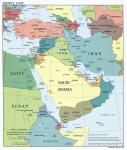

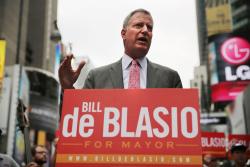
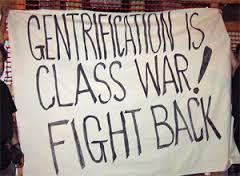



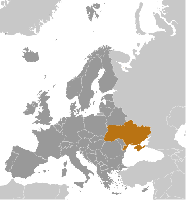 The crisis in Ukraine has raised grave problems for the people of that country, significant dangers for world peace, and many contending views on the left. Here we offer three articles that we think help us make sense of what’s going on, by Joanne Landy, Kevin B. Anderson, and Sean Larson.
The crisis in Ukraine has raised grave problems for the people of that country, significant dangers for world peace, and many contending views on the left. Here we offer three articles that we think help us make sense of what’s going on, by Joanne Landy, Kevin B. Anderson, and Sean Larson.